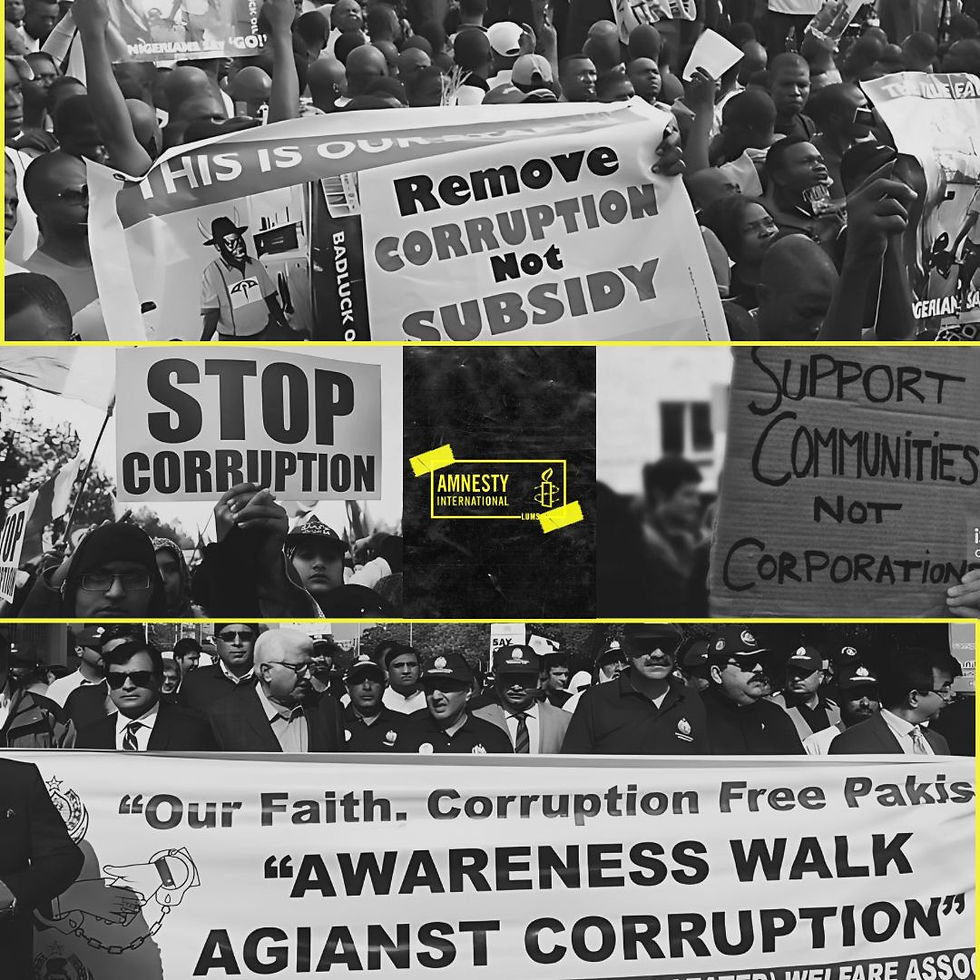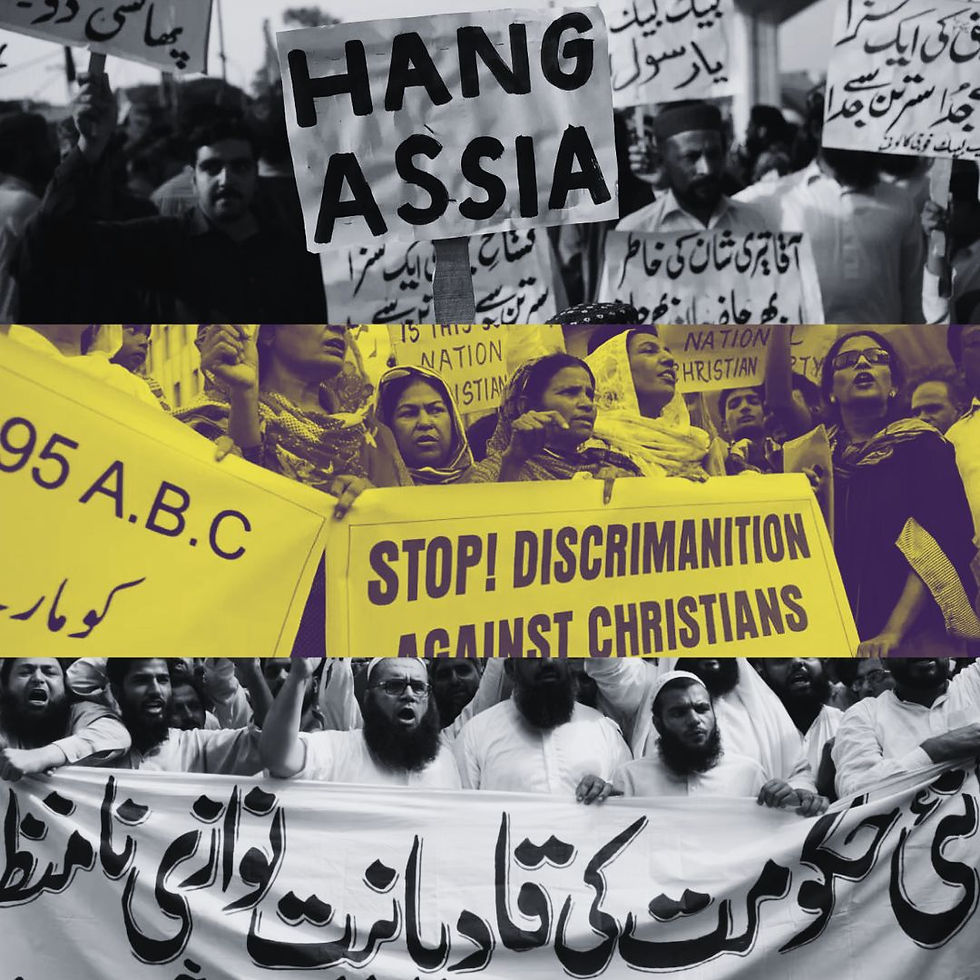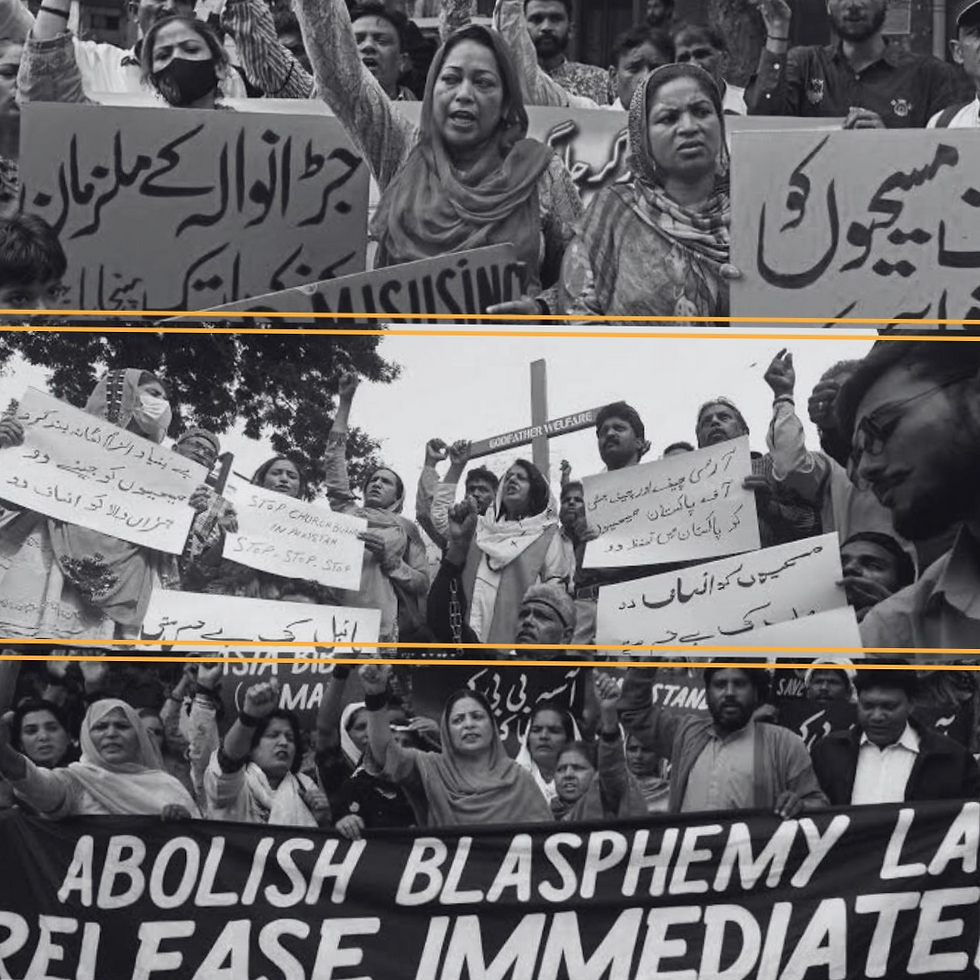Muffled Voices: The Struggle for Press Freedom in Pakistan
- Zara Zahid Khan

- Aug 18, 2024
- 3 min read
By Zara Zahid Khan

Press freedom is the core component of a democratic nation. Citizens have a right to receive vital information, and journalists have the right to provide it. Many obstacles have marked Pakistan’s journey to achieve press freedom, and this post will take a closer look at this journey.
Overview
In 2023, Pakistan ranked 150th out of 180 nations on the World Press Freedom Index. This ranking depicted a dark reality of the challenges journalists and activists face in Pakistan. The challenges range from harassment to death threats. Over the years, whenever political turmoil has shaken the nation to its core, confused citizens have turned to media outlets and newspapers in search of answers. These answers were censored throughout history, and in fear for their safety, several media professionals succumbed to the pressure. To some extent, on paper, support for press freedom has always been present, but a strong commitment to defending the truth seekers of this country is absent.
History
Before 2002, Pakistan did not have any laws that protected the right to information for its citizens. State-controlled media platforms were the norm until 2002 when the Freedom of Information Ordinance was introduced, and the Pakistan Electronic Media Regulation Authority (PEMRA) Ordinance was promulgated. The creation of PEMRA allowed the private sector to own FM radio stations and satellite TV. On the other hand, the English language press has a history of independently providing news, consisting of two large media groups, Jang and Dawn. Today, over 100 TV channels and 200 radio channels in Pakistan provide news and information to its citizens. This journey has not been simple, but over the years, the issues relating to press freedom have been brought to light.
Existing Legal Framework
Constitution of Pakistan 1973
Pakistan's Constitution 1973 under Article 19 enriches the right to freedom of expression. It must be noted that the right to freedom of speech is subject to a few restrictions imposed by law in the interests of the glory of Islam or the integrity, security, or defense of Pakistan, public order, decency and morality, friendly relations with other states, and so on. These restrictions can indeed be deemed necessary to an extent because exercising freedom of speech should not cause undue harm to others. Moreover, the right to information subject to restrictions and reasonable restrictions by law is enshrined in Article 19 A of the Constitution. Hence, there is no doubt that freedom of speech and expression are fundamental rights of every citizen of Pakistan.
Protection of Journalists and Media Professionals Act 2021
This Act provides journalists and Media Professionals with several protections. Under this Act, the government will protect their right to life, which is given to them under Article 9 of the constitution, and protect them from ill-treatment. Their right to privacy is also safeguarded under Sec 4 of the article. Sec 4 also safeguards the confidentiality of the sources of journalists and media professionals. Additionally, Sec 5 safeguards the right of journalists and media professionals to work independently, and any restriction imposed on them should be as per the existing laws.
Positive Development
There have been some positive developments in recent years. Special journalist protection committees and dedicated prosecution cells have been created to reflect the commitment to enhance media safety. A special prosecutor on crimes against media personnel has also been appointed. These efforts and increased international scrutiny indicate that press freedom is important; however, more work and effort are required.
Recent Cases
Even though there are laws present to protect journalists, Freedom Network’s Annual Impunity report in 2023 highlighted that 37.5% of violations occurred only from 2021 to 2023, totaling 93 cases in Islamabad alone. In Sindh, 56 cases occurred. 11 Journalists were killed during this time as well. These statistics suggest that media professionals in Pakistan are still struggling, and their protection should be listed as a high priority.
Conclusion
A nation is strong when its citizens are safe and empowered. Pakistan can prosper and grow when those who seek the truth within its borders are protected and safe. The path to press freedom has been treacherous, but to strengthen its democratic foundations, protection and freedom of the press are vital.





Comments